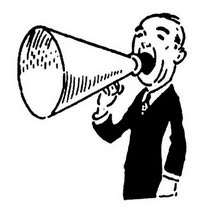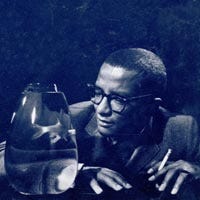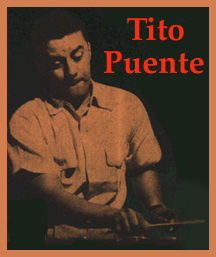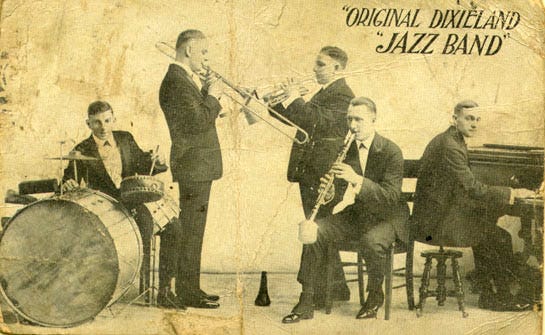1902
Billy Mayerl, leader/composer/piano
b. London, UK
d. March 25, 1959, Beaconfield-Bucks, UK.
Billy Mayerl achieved considerable popularity from the 1920s to 1950s through his radio broadcasts and recordings as a bandleader, a pianist noted for his novelty compositions and songs, and through his many theater scores.
Mayerl's prodigal talents were recognized early: He was granted a scholarship to Trinity College and performed Grieg's Piano Concerto at Queens Hall when he was only 12.
His skill as a silent film accompanist earned him the sobriquet "wonder boy." As his studies advanced, he discovered he was attracted to American popular music. In 1921, while working in a Southampton hotel band, he was asked to join the Savoy Havana Band and he soon became a celebrity.
His compositions, small suites, and collections, at this time demonstrate his love of tone poem-like description: Egyptian Suite (1919) and the Six Pianolettes ("Jazz Master", "Eskimo Shivers" [the only tune that Mayerl recorded on a piano roll], "Jazzaristrix", "Jazz Mistress", "Virginia Creeper", "All-of-a-Twist") written in 1925, published by Keith Prowse.
These compositions have in common an emphasis on syncopation, unusual accents, delightful melodies, dazzling upbeat atmospheres, and varied textures. Mayerl also created many transcriptions of popular tunes of the day.
In 1926, Mayerl left the band to open his School of Syncopation that taught pop piano techniques (stride and ragtime styles mostly), which eventually led to a "Learn How to Play Like Billy" correspondence course, and he also founded a dance band agency. Mayerl recorded many sides for the Vocalian label through 1927 and later worked for HMV, Decca, British Columbia, and others. He also appeared as soloist in the London premiere of Gershwin's Rhapsody in Blue.
One of Mayerl's biggest hits was Marigold (1927). Other pieces of this time included Four Piano Exaggerations (1926, including Sleepy Piano), Hollyhock (Syncopated Impression) (1927), Honkytonk (1928), his popular Jasmine (1929), Six Studies in Syncopation (1930 - 1931), and the Four Aces Suite (1933).
The Ace of Spades is remarkable for its atonal introduction and bi-tonality (similar to Stravinsky's Petrushka, which Mayerl admired). Many of his compositions were also in the British pastoral style, intimate and contemplative, such as the Pastoral Sketches (1928).
BILLY MAYERL AND HIS NOVACHORD
Nippy (1930), Sporting Love (1934), Twenty to One (1935), and Over She Goes (1936).
He continued to play vaudeville houses and variety shows and broadcast regularly. His wife, Jill, was also a fine pianist who had her own recording career.
Mayerl's Aquarium Suite (Willow Moss, Moorish Idol, Fantail, Whirligig) of 1937 was another colorful and subtle "impression" that was much admired. The following year, his spectacular Railroad Rhythm created another hit.
During WWII, his published compositions were considerably fewer, but Mayerl returned to full speed with his beautiful In My Garden series of 12 pieces during 1946 - 1947, his upbeat Postman's Knock (1951), and other delightful pieces through 1959. Mayerl did not incorporate the later riff and freer bebop improvisatory styles in his piano playing, but is still remembered for his melodic creations.
Bill Edward's biography of Mayerl, with a comprehensive list of compositions
1904
Stan Brenders, Piano/Leader
b. Brussels, Belgium, d. 1969.
For the repressive forces of Nazism and the uninhibited creativity of jazz to co-exist may have seemed an impossibility, but jazzmen kept many aspects of their music happening throughout World War II in countries such as Belgium. The resulting gigs, recordings, and performing careers acquired an additional level of interest from intrigue alone.
Stan Brenders would stand on-stage in Brussels in the late '30s and announce that the next tune was going to be "Sept, et avec un combination avec onze," knowing full well the Nazi censors wouldn't be able to follow the pigeon French reference to the real song title, "Seven Come Eleven," which like most swing numbers had been decisively banned from either radio or live airplay. The Nazis had banned jazz itself, but since most of them really didn't know what it was supposed to sound like, the song titles were an all important form of identification, something like the equivalent of a Star of David.
Brenders, a big band leader and conductor, is one of the original cast of characters from Belgian jazz history, which seems to start sometime around the late '20s when Charles Remue & His New Stompers Orchestra went into a London recording studio to cut the first Belgian jazz recording. The pianist in the band was Brenders, swinging alongside other Belgian jazz pioneers such as drummer Harry Belein, tenor saxophonist and clarinetist Gaston Frederic, and bassist Remy Glorieux.
Although considered to be one of the best European jazz bands of the '20s, the group, under the direction of clarinetist and alto saxophonist Remue, stayed together a bit less than a year, following which Brenders began concentrating on fronting his own group. By the mid-'30s, he was conducting the Belgian State Radio Orchestra, also known as l'Orchestre Jazz de l'INR. As the war progressed, it became more and more necessary to create diversionary tactics in order to prevent undue attention being focused on jazz, including the previously described camouflage of American song titles in order to sneak by Nazi censorship.
One of the great victories of jazz against the fascists came in spring of 1942, when the Brenders band backed eight performances in Belgium by gypsy guitarist Django Reinhardt, all of the activity organized strictly guerilla style in outright defiance of the Nazi edict against swinging music.
But with the defeat of the swastika crowd, Brenders' music became less and less swinging, with increasing use of schmaltzy strings. While jazz listeners are likely to crash into Brenders and his orchestra in the front aisle of any Django Reinhardt collection, other examples of the Brenders sound are featured on compilations of European dance bands.
~ Eugene Chadbourne
1908
Gene Gifford, Arranger, guitar, banjo
b. Americus, GA
d. 1970.
Although virtually unknown to the general public during the swing era, Gene Gifford was a highly influential arranger whose work for the Casa Loma Orchestra predated the rise of Benny Goodman. Gifford grew up in Memphis and he both arranged and played banjo with his high school band. Gifford performed with such territory bands as Bob Foster, Lloyd Williams and Watson's Bell Hops. He toured Texas with his own band and then worked with Blue Steele (switching to guitar) and Henry Cato's Vanities Orchestra (1928).
Gifford gained some attention for his arrangements for Jean Goldkette and in 1929 he became a member of the Orange Blossoms which soon became the Casa Loma Orchestra. He was the big band's chief arranger (playing guitar and banjo until he gave up active playing in late-1933).
Skilled at writing excitable ensembles and yet able to write dreamy ballads too, Gifford's arrangements gave the Casa Loma Orchestra its own personality and led to it being one of the most popular big bands of the pre-swing era. Among Gifford's compositions were the Casa Loma's memorable theme "Smoke Rings," "Casa Loma Stomp," "White Jazz," "Black Jazz," and "Blue Jazz" among many others.
After leaving the band in 1939, Gifford branched out, arranging for many of the top bands and for radio. He returned to the Casa Loma band (then known as Glen Gray's Orchestra) in 1948-49 and then spent most of the 1950's and 60's outside of music, working as a radio engineer but still writing music (and teaching) on a part-time basis. Gene Gifford just led one recording date of his own, resulting in four selections in 1935 for Victor.
~ Scott Yanow
The Virtual Victrola: Gene Gifford
The Ellington sax section with Otto Hardwick on bass sax
1904
Otto "Toby" Hardwick, Alto Sax
b. Washington, DC, USA. d. 1970, USA.
Member: 'Duke Ellington Orchestra'
An outstanding alto saxophonist, Otto Hardwick was among the earliest players to give that instrument some identity and demonstrate its improvising potential. He had a consistently swinging, enjoyable style, and provided both sentimental, lyrical refrains on ballads and joyous work on stomps. He was extremely versatile, beginning as a bassist, moving to C-melody sax, and finally settling on alto.
Hardwick and Duke Ellington were virtually lifelong friends (from the early '20s), and during his first stint in the Ellington band, Hardwick played clarinet and violin as well as baritone and alto. He didn't remain in the orchestra nearly as long as some others, however, and left the band in 1928 to visit Europe. He played with Noble Sissle and led his own orchestra before returning to New York in 1929.
Hardwick worked with a band that included Chu Berry and Fats Waller; this orchestra even bested Ellington in a battle of the bands. But Hardwick returned to the Ellington orchestra in 1932 following a brief stint with Elmer Snowden, and remained until 1946. During this stint Hardwick doubled on bass sax.
He and Ellington co-composed several pieces, most notably "Sophisticated Lady." He was featured on such songs as "Jubilee Stomp" and "Got Everything But You." Hardwick also played lead alto on several pieces in which Johnny Hodges wasn't featured as the principal alto player.
After cutting an album in 1947, Hardwick retired from the music business.
He can be heard on many Ellington albums reissued on CD from the '20s,
'30s, and '40s.
~ Ron Wynn
Jazz Standards Songs and Instrumentals (Sophisticated Lady)
Notable Events Occurring On This Date Include:
1917
"DarkTown Strutters Ball" (First Jazz record released) by the Original Dixieland Jass Band.
1954.
Garland Wilson, piano
died in Paris, France.
Age: 44
1967.
Billy Strayhorn, piano/arranger
died in New York, NY, USA.
Age: 51.
1980.
Sonny Burke, leader, piano, arranger, composer, producer died in Los Angeles, California, USA ( b. March 22, 1914, Scranton, Pennsylvania, USA).
Two of the songs he composed were "Black Coffee", and "Midnight Sun"
1990.
Flora Molton, (gospel) slide guitar
died in Washington, DC, USA.
Age: 82
1994.
Emmanuel "Manny" Klein, trumpet died.
Age: 86. (b. Feb. 4, 1908, New York, NY, USA)
2000.
Tito Puente
died in New York, NY, USA.
Age: 90.
Songs Recorded/Released On This Date Include:
1917
Original Dixieland Jass Band
Original Dixieland Jass Band - Indiana
1918
Wilbur Sweatman's Jazz Orchestra - Good-Bye Alexander (Introducing: "Oh! Frenchy")
1922
Paul Whiteman and his Orchestra - It's Up To You! (J'en ai Marre!)
1927
Wilton Crawley - Geechie River Blues
1928
Wilton Crawley - Old Broke-Up Shoes
Red Nichols' Five Pennies - Dear Old Southland
The Broadway Bell-Hops
1929
Annette Hanshaw
LYRICS:
Darktown Strutters Ball
~Shelton Brooks
1917
I'll be down to get you in a taxi, Honey.
Better be ready 'bout half past eight.
Now, Honey, don't be late.
I wanna be there when
the band starts playing
Remember when we get there, Honey
Two steps, I'm gonna have a ball
I'm gonna dance off both my shoes
When they play those Jelly Roll Blues
Tomorrow night at the
Dark Town Strutters Ball.
I'll be down to get you in a taxi, Honey.
Better be ready 'bout half past eight.
Now, Honey, don't be late.
I wanna be there when
the band starts playing
Remember when we get there, Honey
Two step, we're gonna have a ball
I'm gonna dance off both my shoes
When they play those Jelly Roll Blues
Tomorrow night at the
Dark Town Strutters Ball.
Tomorrow night at the
Dark Town Strutters Ball.
Harry Akst and Grant Clarke
Harmony Records, 1929
Am I blue, am I blue
Aint these tears in my eyes tellin' you
Am I blue, you'de be too
If each plan with your man
Done fell through
Was a time I was his only one
But now I'm the sad and lonely one, Lordy
Was I gay, till today
Now he's gone and we're through
Am I blue
Was I gay, till today
Now he's gone and we're through
Am I blue
Oh he's gone, left me
Am I blue
Thats all
Daddy, Won't You Please Come Home?
~(Clarence Williams / Charles Warfield)
When night is creepin'
And I should be sleepin' in bed
If you were peepin'
You'd find that I'm weepin' instead
My lovin' daddy left his baby again
Said he'd come back but he forgot to say when
Night after night, I'm cryin'
Daddy, won't you please come home?
Daddy won't you please come home?
I'm so lonesome
No one can fill that vacant chair
Home isn't home when you're not there
No need to knock, the door is open for you
Please, daddy
Even the clock keeps tickin'
Daddy won't you please come home?
Daddy do you have to roam so very long?
There's lots of other new sheiks who would like to be sheikin'
Haven't slipped yet, but I'm liable to weaken
Daddy, daddy, won't you please come home?
Please, daddy
Even the clock keeps tickin'
Daddy won't you please come home?
Daddy do you have to roam so very long?
There's lots of other new sheiks who would like to be sheikin'
Haven't slipped yet, but I'm liable to weaken
Daddy, daddy, won't you please come home?
That's all
Special thanks to: The Red Hot Jazz Archives, The Big Band Database, Scott Yanow, and all those who have provided content, images and videos for this site.















